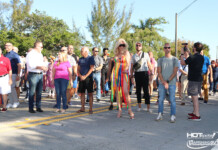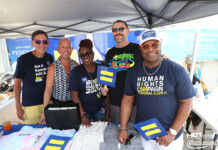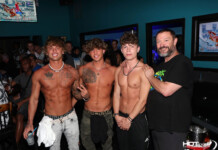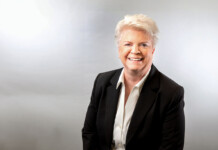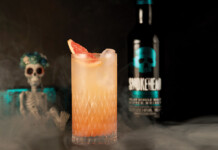A History of Its Observance, Plus Profiles of Two Notable Hispanic LGBT People
National Hispanic Heritage Month starts on September 15 and runs through October 15. The special month celebrates Hispanic culture and Hispanic people’s contributions to United States history. National Hispanic Heritage Month originated as “Hispanic Heritage Week,” which was first recognized by President Lyndon Johnson in 1968. Twenty years later, President Ronald Reagan asked that the Week be expanded from the third week in September to September 15 through to October 15.
Hispanic Heritage Month organizers believed September 15 was important as the starting point because eight Latin American nations celebrate their independence days in the week starting on that date: Costa Rica, El Salvador, Guatemala, Honduras and Nicaragua all celebrate their independence on September 15, while Mexico celebrates theirs on September 16, Chile celebrates theirs on September 18 and Belize earned their independence on September 21 (in 1981, becoming the most recent independent nation in Latin America).
There are many notable LGBT people of Hispanic descent who have made their mark on history and culture in the United States. Here are profiles on two such people.
 Sylvia Rivera
Sylvia Rivera
(July 2, 1951 – February 19, 2002)
Sylvia Rivera, of Puerto Rican and Venezuelan descent, was orphaned at an early age; her father was never a part of her life and her mother died at the age of three. Her Venezuelan grandmother, who did not approve of Rivera’s femininity, kicked the child out of the house at the age of eleven, and Rivera had to resort to prostitution to survive. Taken in by a group of drag queens, they gave her the name “Sylvia.”
Rivera frequented the Stonewall Inn, and participated in the Stonewall Riots of 1969. She lived on Christopher Street and was very involved in social justice movements such as the civil rights movement for black people, the feminist movement, and the anti-war movement. She would later turn her eye to advocacy, as she experienced homelessness, prostitution and drug use while living on the streets, and she felt the mainstream gay community was ignoring this segment of the population.
She was close friends with LGBT activist Marsha P. Johnson, with whom she co-founded the Street Transvestite Action Revolutionaries (STAR) in 1970, and was very shaken by her death in 1992. In the mid-1990s, she spoke out about her involvement in the social justice movements of the 1960s and 1970s, and this renewed her fight for LGBT equality. In 2001, she revived STAR (changing the “T” from “Transvestite” to “Transgender”) and lobbied the state legislature in Albany for a transgender rights bill. Her renewed advocacy work was cut short when she fell ill with liver cancer, and died on February 19, 2002. She is best remembered for urging transgender people, as well as people who do not conform to gender norms, to fight for their earned place in the LGBT movement.
 Ricky Martin
Ricky Martin
(born December 24, 1971)
Ricky Martin was born and raised in San Juan, Puerto Rico. He found that he had a natural talent for singing, beginning at age six. When he was twelve years old, he auditioned for a spot in the Latin boy band Menudo, finally being accepted by the group’s producers on his third attempt. He would be a part of the band from 1984 to 1989, and the group became very popular in Latin America as well as in the U.S. Hispanic community, singing songs in both English and Spanish. He left Menudo at age 17 to pursue a solo career. He released his debut album in 1991, and moved to Los Angeles in 1994 to try a career in acting, quickly earning a role on the soap opera General Hospital. Feeling that Hollywood was biased against Latino actors, he put his acting aspirations on hold and went back to music.
He would release two more Spanish-language albums in the mid-1990s, and eyed a crossover move to the English-language market. He released his first English-language album in 1999 and it became a massive hit, going seven times platinum. “Livin’ La Vida Loca,” the lead single from the album, went to #1 in the United States and in many countries around the world, and the follow-up single, “She’s All I Ever Had,” peaked at #2. He went on to capitalize on this success with another album, Sound Loaded (2000), which yielded the hit singles “She Bangs” and “Nobody Wants to Be Lonely.”
He released three more Spanish-language albums in the early and mid-2000s, and embarked on a very successful world tour in 2006. Afterwards, he took a three-year hiatus from music. He would return to the spotlight in 2010 when he released his New York TImes-bestselling autobiography, Me, in which he came out to the public. He struggled with his sexuality since the early 1990s and kept it bottled up, for fear of losing his career. Since then, he has become a social justice advocate and has worked with organizations such as GLAAD and the United Nations International Day Against Homophobia. He is a father to twin boys, Matteo and Valentino.
To read more about National Hispanic Heritage Month from an LGBT viewpoint, visit the Latino GLBT History Project’s website at latinoglbthistory.org.

